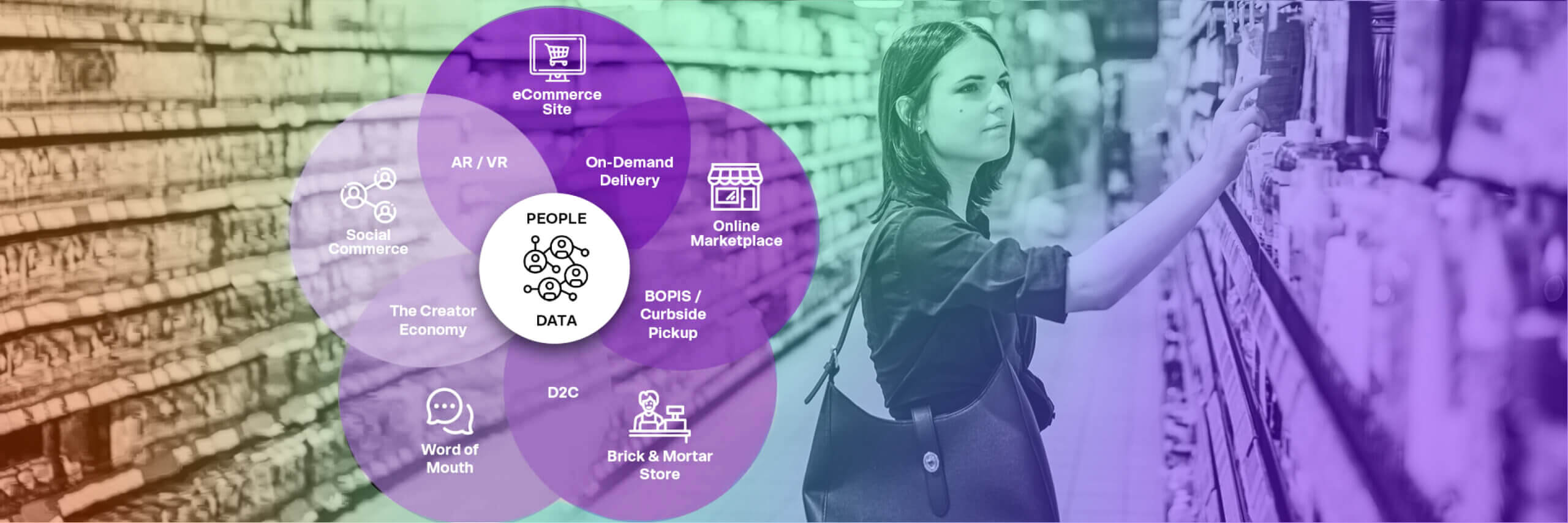Econsultancy Live is not a conference to just sit back and listen. It is a hub of lively debate and discussion, as excellent panels and talks act as inspiration for round table moments which create a conversational event culture. More than ever, this year, the discussion felt like a game of two halves. Split between a focus on best practices which help brands win NOW, and a nervous excitement about what’s NEXT, given the impending rapid changes of AI and economic uncertainty. This dichotomy is reflected in the fact that CMOs see digital and tech as the biggest ongoing opportunity AND challenge. Some even struggle to implement best practices now, let alone evolve for future competitive advantage. Adobe and Econsultancy started the day, sharing research that marketing leaders’ confidence that their digital experience met customers’ needs had decreased since 2022. This reflects an awareness of the changing value exchange with customers and an unease in knowing how to evolve current best practices with tech moving so fast.
CMO Best Practices
So what are the best practices that top CMOs are focusing on now, and how can they be evolved for competitive advantage in the future?
Here are 3 recommendations to fuel confidence:
Create Relevance by Mapping Participants
The best-in-class panelists and marketers at Econsultancy Live knew they needed a deep understanding of their customers, but many also highlighted how they often struggled to gain agile insights in a changing market, utilize all internal data, or map out what content or touch points were really effective. Those are obviously problems that need to be sorted out quickly and AI may come to the rescue. But with empowered consumers rethinking how they buy and who they trust, plus an expanding competitor field, those looking to the future need to widen their view. They need to build a deeper ongoing understanding of the evolving customer beyond their category limits and the relationships of all participants in their ecosystem. Not all brands are as cool as Marvel, but they can learn from the approach of Adri Cowan, who manages a team that daily has to energize the inter-relationship of fandoms and IP-led properties to stay relevant. She showed us how testing, learning, pushing boundaries and keeping the data flowing keeps her team, and more importantly, the rest of the business up to date. Marvel, like many entertainment brands, has learned from the masterful Disney flywheel — which shows how a focus on feeding incremental learnings across the businesses and people who interact, creates enduring momentum.
Harness the Ecosystem Beyond a Linear Journey
I was very much looking forward to Jos Harrison’s session on “Connected Experience in FMCG” with a focus from a product-led to service-led approach. Using Nike as a starting point for the value of building meaningful relationships and advocacy, he even managed to fend off cynical questions about the relevance of Nike to products in, what some may describe as, his “low interest category” Reckitt portfolio. His examples and creative solutions were a nice counter to the debate about getting the balance of creativity and efficiency right in digital, but it still seemed to focus too much on designing for the linear rather than the unique and exponential. It reflected what the best brands are doing, be it Berryworld supporting bakers during Coronation weekend or Kleenex’s hayfever content, but it stopped short of looking beyond a very linear journey. With 3 in 4 consumers shopping with a fusion of on and offline tactics, using multiple devices at once in a wide array of situations, and taking inspiration from far and wide as trust in advertising falls, brands need to look wider in order to win. The focus should shift to an ecosystem perspective which translates a customer’s interactions into holistic data to truly fuel a plan for the future and looks at how to connect with them more regularly and frequently in a valuable way for all.
Start With Purpose Not Product for Meaningful Disruption
“Purpose” can have a bad rap and is increasingly seen as last season’s fluffy new toy versus a tool for hard-nosed digital marketers, but this is because there are so many meaningless purposes out there. A good purpose is unique and widens the scope for content and connection. In today’s world where ecommerce is standard, a good purpose opens the door to better brand building initiatives driving emotional relationships. A focus on performance marketing alone for D2C disruptors can prove fatal when they themselves are disrupted or prices are undercut. A good purpose activated helps extend beyond this in a unique way, creating long term mutual value and transcending a reliance on paid media. It was refreshing to hear brand discussed in the ecommerce session, but sad to see so few examples of D2C companies doing it well.
CarWow is brilliant a platform business, having seen huge success in the UK by focusing on connecting with normal cars buyers not car fanatics. Their hugely successful and fun YouTube channel takes its inspiration from “Top Gear” and the best online car influencers, but primarily talks to a car fan audience. Although the car fan is an influencer to their buyer, there is a bigger opportunity. A strong brand purpose could open a wider aperture for moments of engagement and community with their core non car fan target and beyond. Starting with purpose also counters cost dynamics, builds long term value, and help humanize the relationship.
As we move toward what’s next, CMOs will gain competitive advantage if they can: let purpose power interactions, and keep the customer front and center while leveraging influence and opportunity across the larger ecosystem. Then they can face the future with confidence.
